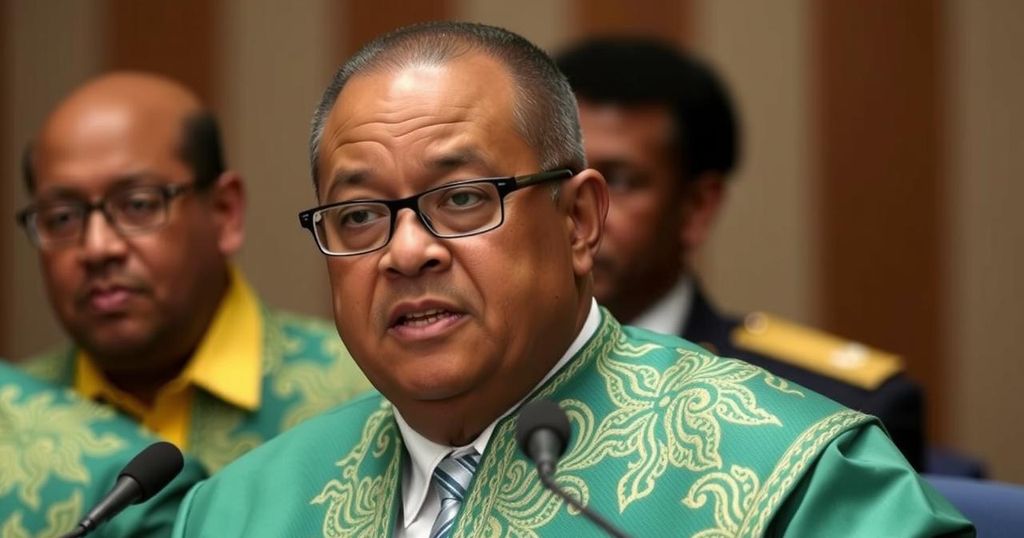Issa Kaou N’Djim was sentenced to two years in prison by a Malian court for criticizing the military government of Burkina Faso. His comments were made during a televised program, leading to the closure of the station that aired it. His jailing follows the abduction of another opposition figure, demonstrating the heightened risks faced by dissenters under military rule in the region.
A Malian court has sentenced political dissident Issa Kaou N’Djim to two years in prison, one of which is suspended, for making disparaging remarks about the military leadership in neighboring Burkina Faso. N’Djim expressed his criticisms during a broadcast on Joliba TV News, which has since been shut down by Mali’s authorities for its coverage of his comments. The court ruling also imposed a fine of 1 million CFA francs ($1,600) on N’Djim. His incarceration coincides with the mysterious abduction of another opposition figure, Ibrahim Naby Togola, highlighting the tightening grip of military regimes over dissent and the press in Mali and Burkina Faso. Both countries, governed by military juntas since recent coups, have increasingly curtailed media freedom and stifled opposition voices, prompting ongoing international concerns regarding democracy and human rights in the region.
The political landscape in Mali and Burkina Faso has been deeply affected by military coups that led to the establishment of military governments in 2020 and 2022, respectively. These regimes have been facing significant challenges, including political instability and security crises, exacerbating the need for tighter control over opposition voices and media outlets. The measures taken against dissenters, such as Issa Kaou N’Djim, underscore the increasingly authoritarian nature of these governments, which have previously been criticized for limiting freedom of speech and press. The abduction of opposition leader Ibrahim Naby Togola further exemplifies the threats faced by political dissidents under current military rule.
In conclusion, the sentencing of Issa Kaou N’Djim serves as a stark reminder of the repressive political climate in Mali, where critical voices face severe consequences. The closure of Joliba TV News and the unlawful detention of Ibrahim Naby Togola signal a broader strategy employed by military regimes to suppress dissent and control information. This pattern of repression raises serious concerns about the future of democracy and human rights in both Mali and Burkina Faso, warranting international attention and action.
Original Source: www.voanews.com






